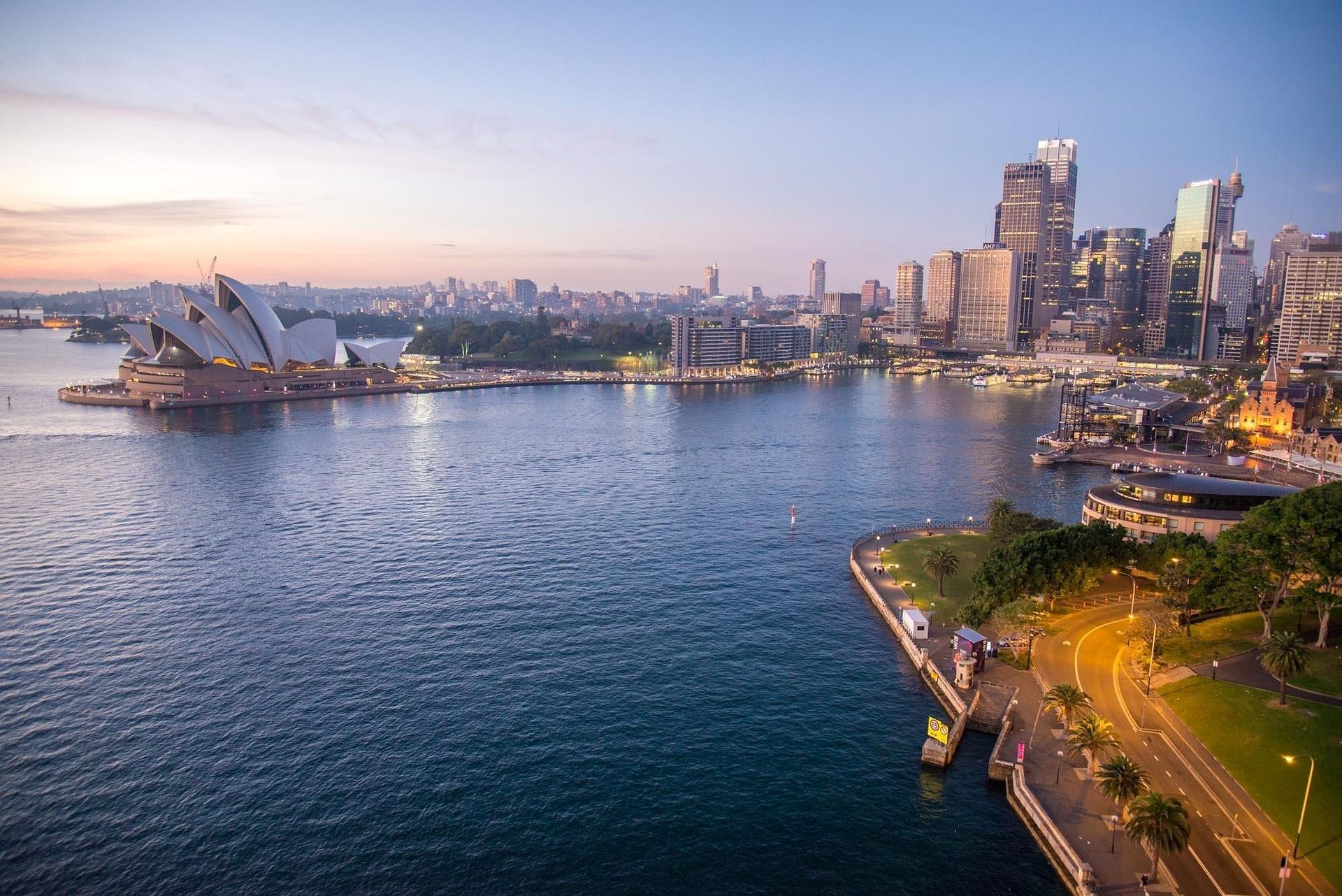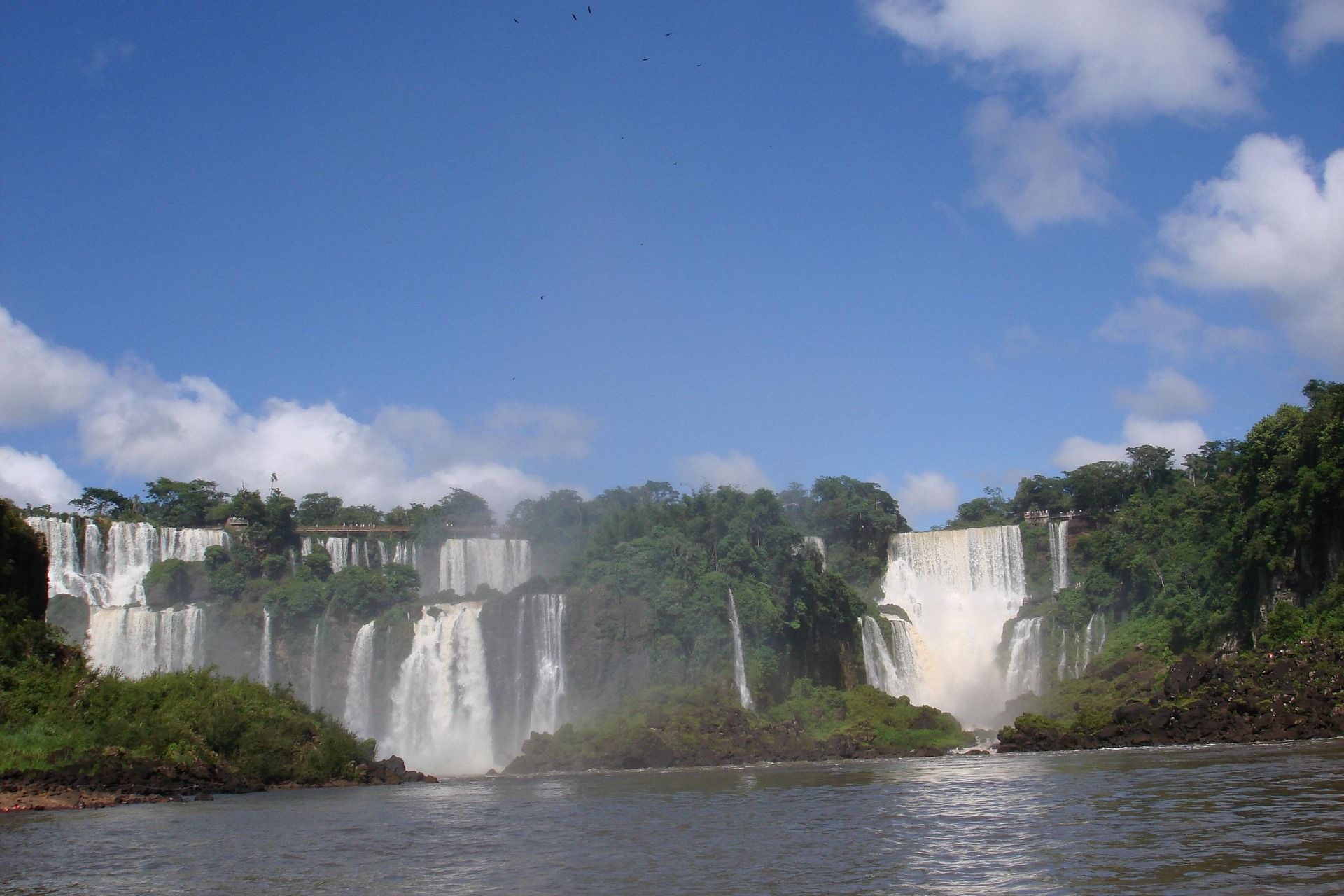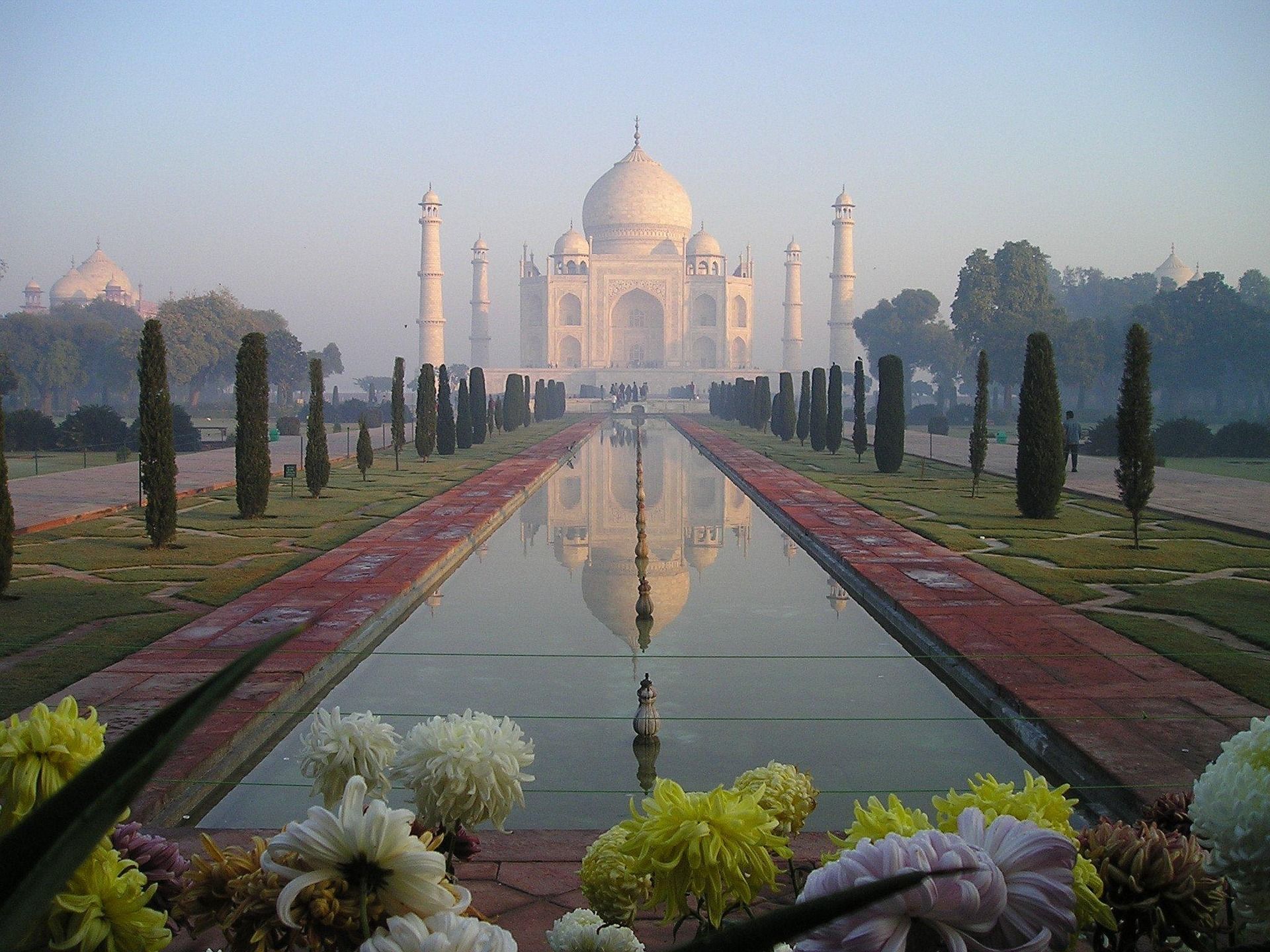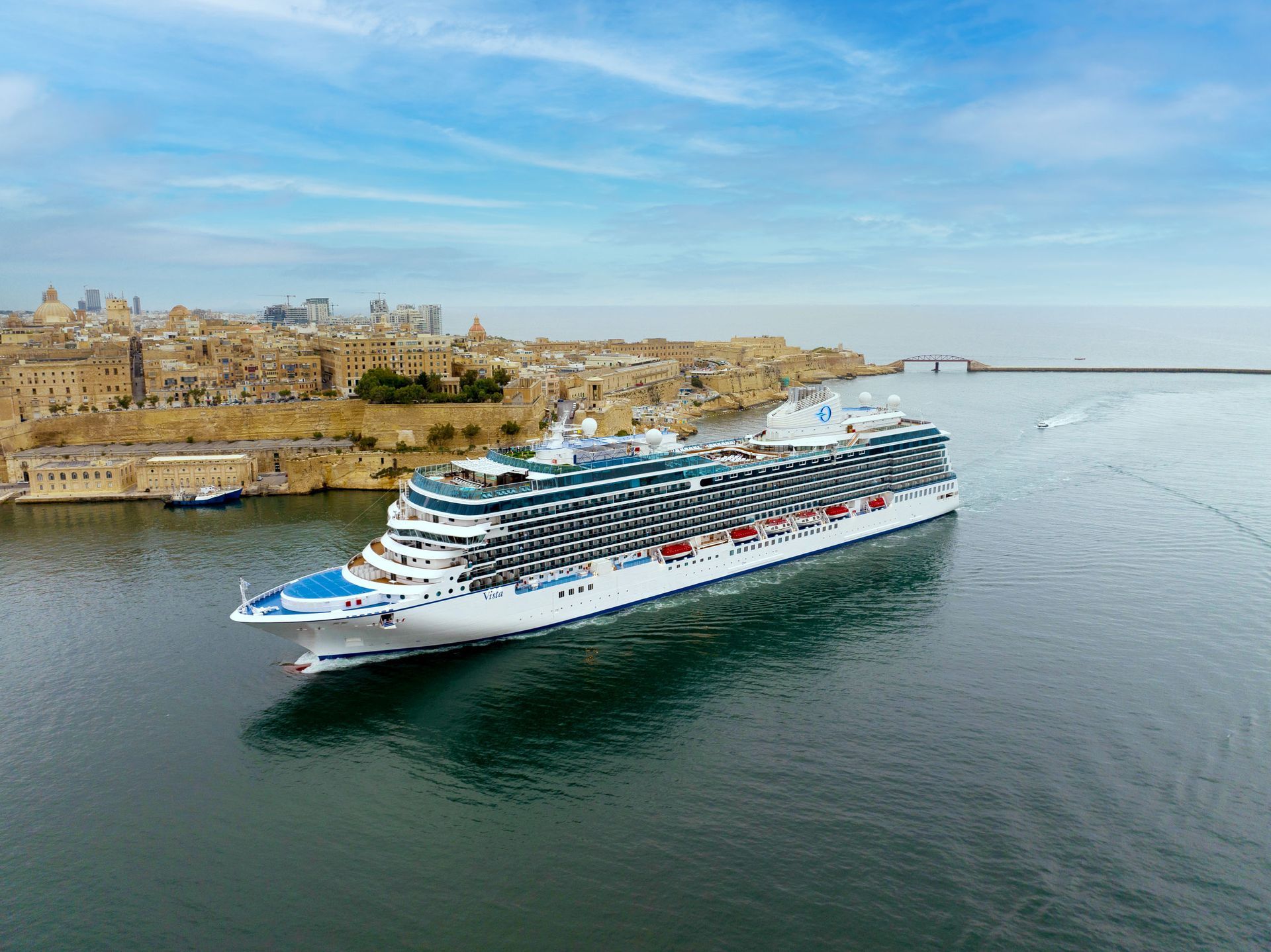Follow Us
Join our newsletter
We will get back to you as soon as possible
Please try again later
THE ULTIMATE AFRICAN SAFARI CALENDAR: BEST TIMES TO SEE WILDLIFE MONTH BY MONTH
Discover the Ultimate Month-by-Month Guide to African Wildlife Safaris and Adventures
Planning the perfect Africa safari means knowing exactly when and where to witness nature's most spectacular moments. From the thundering hooves of the Great Migration to intimate encounters with mountain gorillas, each month in Africa offers unique wildlife experiences that will take your breath away.

This comprehensive safari calendar reveals the best times to visit Africa's most iconic destinations, including the Serengeti, Masai Mara, Okavango Delta, and Kruger National Park. Whether you dream of watching newborn wildebeest take their first steps in Tanzania, tracking leopards in Zambia's South Luangwa, or observing humpback whales along the coast, our expert guide helps you plan the perfect wildlife adventure.

Learn when to find the most dramatic predator-prey interactions, witness rare animal behaviours, and enjoy optimal weather conditions across East and Southern Africa. From luxury lodges to remote camping experiences, discover how to make the most of your African safari throughout the year.
Want to see more wildlife in their natural habitat? Read our extensive guide and review Expedition cruising to Antarctica

Whether you're a first-time safari-goer or a seasoned wildlife photographer, this month-by-month guide will help you plan an unforgettable African adventure that puts you in the right place at the right time to witness nature's greatest shows.
Read our companion article - Top 5 Cruise Destinations for Wildlife
January: A Perfect Time for Africa Wildlife Adventures
January offers unique opportunities to experience Africa's wildlife. From witnessing dramatic moments in Tanzania to enjoying ideal trekking conditions in East Africa, this month is a fantastic choice for nature enthusiasts

Tanzania: Witness the Great Migration Calving
January is a busy yet rewarding time to visit Tanzania, especially for those eager to see the magic of new life in the wild.
Migration Highlights:
- In the southeast Serengeti, vast herds of wildebeest, zebras, and antelopes give birth to thousands of calves.
- Predators such as lions, cheetahs, and hyenas are highly active, taking advantage of this season.
Best Parks to Visit:
- Serengeti National Park: Ideal for the migration and predator interactions.
- Tarangire National Park: Enjoy wildlife viewing as the park experiences a break from rains.
- Ngorongoro Crater: A stunning destination for spotting a wide variety of species in a compact area.

Gorilla Trekking: Prime Conditions in Uganda and Rwanda
January is one of the best months for trekking mountain gorillas in East Africa due to favourable weather conditions.
Where to Go:
- Bwindi Impenetrable National Park, Uganda: Home to nearly half of the world’s mountain gorillas.
- Volcanoes National Park, Rwanda: Known for breathtaking landscapes and rich biodiversity.
Why January is Ideal:
- The short dry spell reduces rain and mud, making trails easier and safer to navigate.
- Comfortable trekking conditions enhance your overall experience.
Pro Tips for a January Wildlife Safari
- Pack for the Season: Bring light rain gear for unexpected showers in Tanzania and sturdy boots for gorilla trekking.
- Book Early: High demand during this period means securing permits for gorilla trekking and accommodations is essential.
- Photography: Dramatic skies and lush landscapes in January offer fantastic opportunities for wildlife photography.
Visiting Africa in January guarantees unforgettable encounters, whether you're marvelling at newborn calves on the Serengeti or trekking to see majestic mountain gorillas in their natural habitat.
February: Thrilling Wildlife and Natural Wonders
February brings a mix of dramatic wildlife spectacles and unique natural experiences across Africa. From the thundering majesty of Victoria Falls to the serene beauty of the Seychelles, this month offers diverse opportunities for adventure.

Although February is part of the rainy season, it’s the perfect time to witness Victoria Falls in all its glory in Zambia & Zimbabwe.
What to Expect:
- Torrents of water plunge over the edge, creating mist and rainbows visible for miles.
- The surrounding rainforest is lush and vibrant, teeming with birdlife.
Pro Tip:
- Wear waterproof gear and protect your camera, as the spray from the Falls can drench you quickly.

The Seychelles: A Paradise for Marine and Wildlife Enthusiasts
February is an excellent month to explore the pristine beauty of the Seychelles, especially for water and wildlife lovers.
Snorkeling and Diving Highlights:
- Clear, warm waters around islands like Fregate, Denis, Praslin, and Mahé.
- Vibrant coral reefs and diverse marine life, including tropical fish, rays, and even sharks.
Unique Wildlife Encounters:
- Turtle Hatching: Witness baby sea turtles emerging and making their way to the ocean.
- Black Parrots: Endemic to the Seychelles, these rare birds can be spotted on Praslin Island.
- Giant Tortoises: Found on islands like Fregate and Aldabra Atoll.
Best Beaches:
- Anse Lazio (Praslin) and Anse Source d'Argent (La Digue) are top picks for relaxation and wildlife viewing.
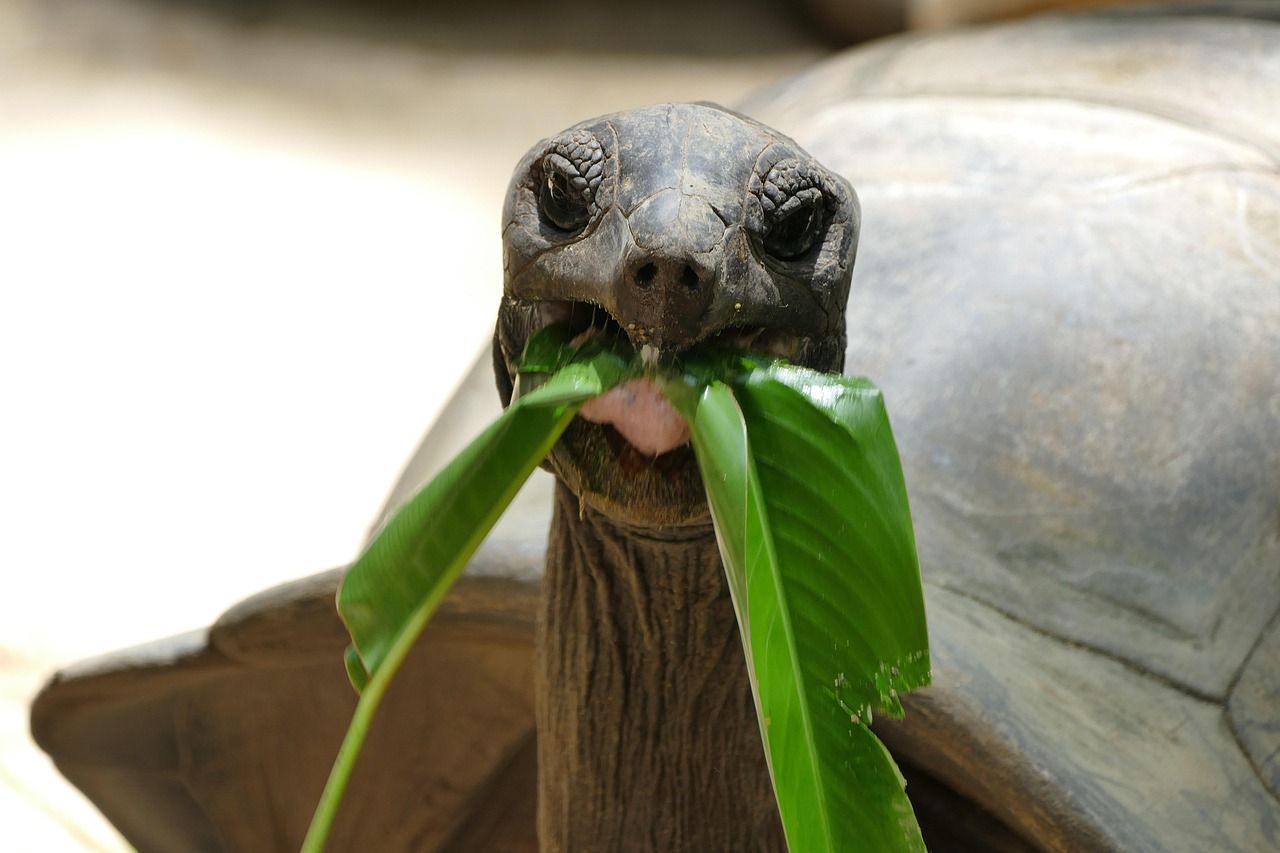
Travel Tips for February Adventures
For Victoria Falls:
- Expect humid conditions and occasional rain; plan activities like helicopter rides for stunning aerial views of the Falls.
For the Seychelles:
- Pack lightweight, quick-dry clothing and plenty of sunscreen.
- Book guided tours to maximize your chances of seeing rare species like black parrots and nesting turtles.
February offers a unique blend of exhilarating adventures and tranquil escapes, making it an ideal month for travelers seeking diverse wildlife and natural wonders. Whether marveling at the raw power of Victoria Falls or exploring the underwater paradise of the Seychelles, unforgettable experiences await.
March: Quiet Adventures and Remarkable Wildlife in Africa
March is a transitional month across Africa, with changing weather patterns creating unique opportunities for travelers. While some areas experience rains, this is an excellent time for affordable travel, peaceful camps, and extraordinary wildlife encounters.

Why Travel to Africa in March?
- Affordable and Quiet: Camps and lodges are less crowded, offering great deals and a tranquil safari experience.
- Birdwatching Bonanza: Thousands of migratory birds arrive, adding vibrant life to wetlands and savannahs.
- Excellent Wildlife Viewing: Despite rains in some areas, animal sightings remain strong, especially in private reserves.
Top Wildlife Destinations in March
Sabi Sands Private Game Reserve, South Africa
For big game lovers, Sabi Sands, adjacent to Kruger National Park, is a prime location in March.
Wildlife Highlights:
- Exceptional leopard sightings, often elusive in other areas.
- Strong populations of rhinos, along with other members of the Big Five: lions, elephants, buffalo, and leopards.
Why Visit in March:
- Lush green landscapes offer a picturesque backdrop for photography.
- Fewer tourists ensure a more intimate game drive experience.
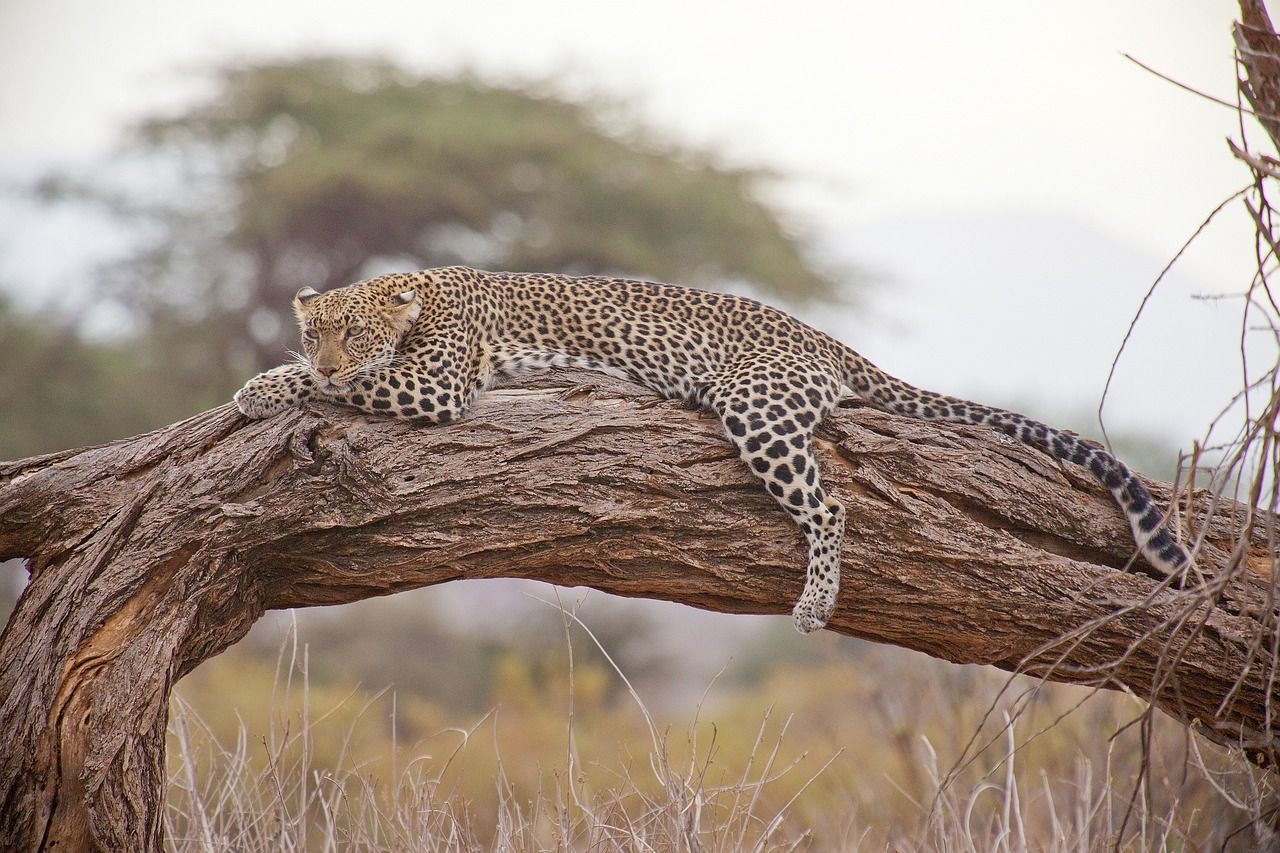
Birding Destinations Across Africa
March is a fantastic time for birdwatching enthusiasts.
Key Spots:
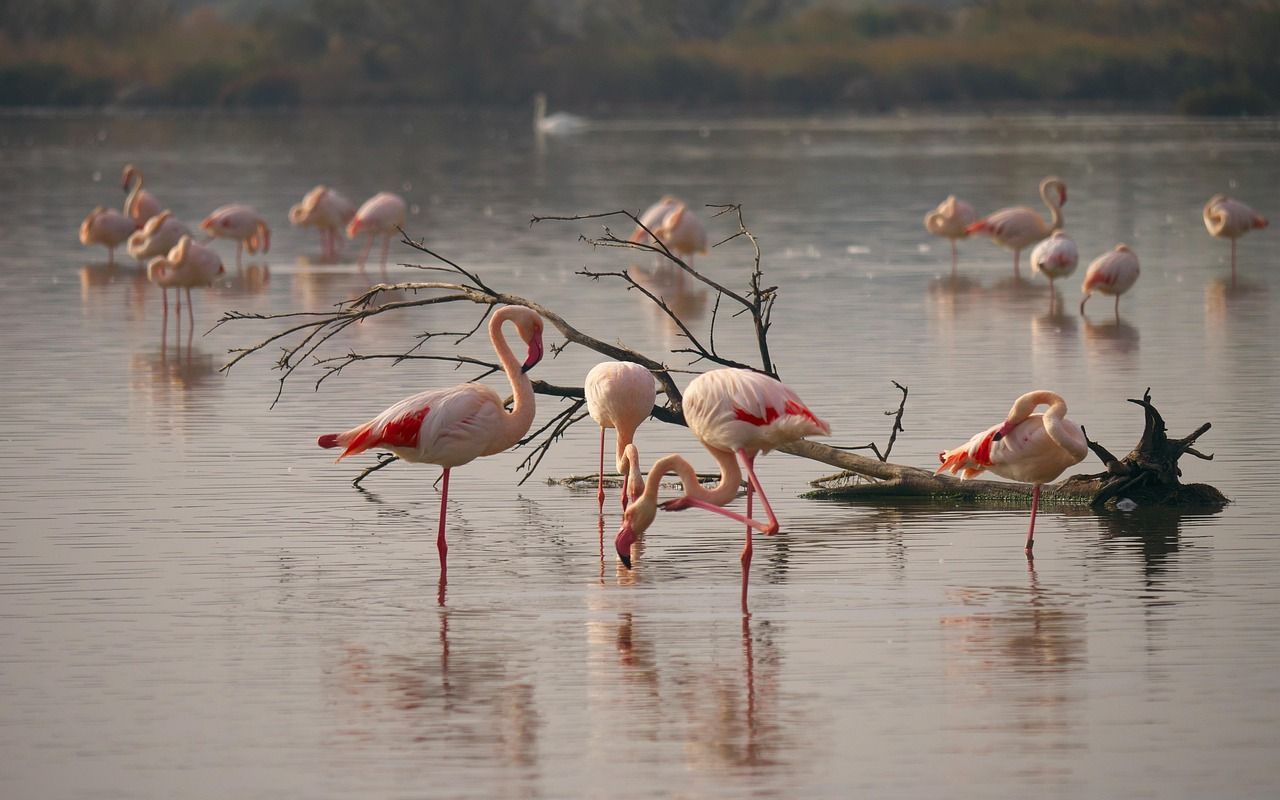
Tips for a Memorable March Safari
Be Prepared for Rain:
- Pack lightweight rain gear and waterproof bags for your equipment.
- Consider 4x4 safari vehicles for better navigation on wet terrain.
Take Advantage of Deals:
- Many lodges and camps offer discounted rates in March.
- Book private reserves like Sabi Sands for a luxurious yet quieter experience.
Focus on Photography:
- The combination of dramatic skies, lush greenery, and abundant wildlife makes for stunning photos.
March is an underrated time to visit Africa, offering a balance of affordability, peace, and exceptional wildlife experiences. Whether you’re tracking leopards in Sabi Sands or marveling at migratory birds, this is a month filled with hidden treasures for adventurers.
April: Action-Packed Wildlife and Seasonal Spectacles in Africa
April is a dynamic month for African wildlife, offering a mix of breeding displays, predator-prey action, and marine wonders. While some regions experience the start of the rainy season, this brings lush landscapes and unique opportunities for travelers seeking unforgettable adventures.
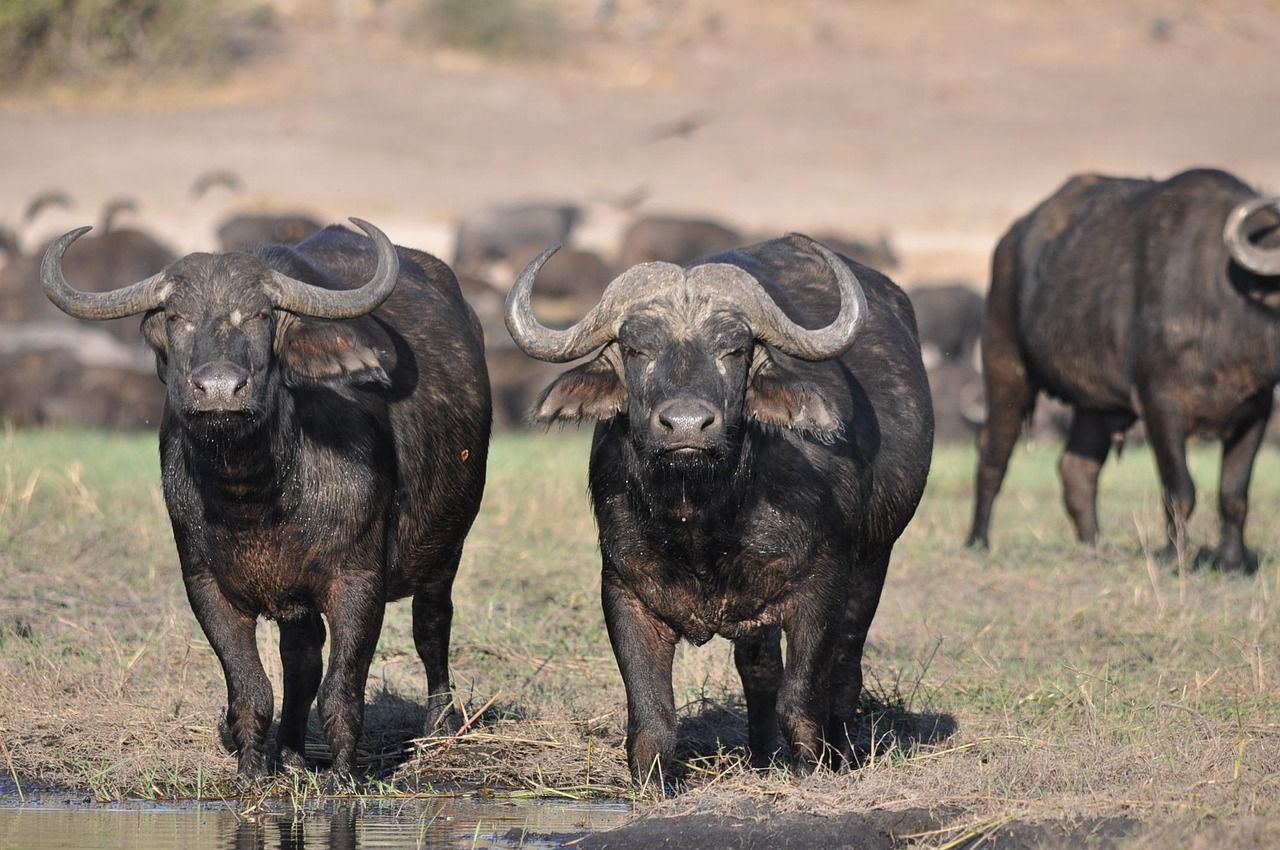
Key Highlights for April Wildlife Travel
- Breeding Drama in Southern Africa: Witness antelope males battling for dominance in Botswana and Malawi.
- Predator Action in East Africa: Big cats thrive as wildebeest migration stirs life into the Seronera region.
- Whale-Watching in Coastal East Africa: Humpback whales begin their annual journey to warmer waters.
Best Destinations for April Wildlife Viewing
Botswana and Malawi: Antelope Breeding Season
April marks the breeding season for antelope, making it an exciting time to visit these destinations.
What to Expect:
- Male antelope displaying dominance through dramatic headbutting contests.
- Breeding behavior across species like impala, kudu, and waterbuck.
- Rich greenery from recent rains, creating a scenic backdrop.
Where to Go:
- Okavango Delta, Botswana: Exceptional for observing wildlife in wetland habitats.
- Liwonde National Park, Malawi: A hidden gem for wildlife enthusiasts.
Serengeti National Park, Tanzania: Predator Action Amid the Migration
The wildebeest migration continues through the Seronera region, offering a prime opportunity for spotting predators in action.
Wildlife Highlights:
- Columns of wildebeest on the move, crossing the verdant plains.
- Lions, cheetahs, and leopards stalking the herds, creating dramatic predator-prey interactions.
Why Visit in April:
- Fewer tourists due to the rainy season means less crowded safaris.
- Vibrant landscapes and dynamic wildlife make this a photographer’s dream.
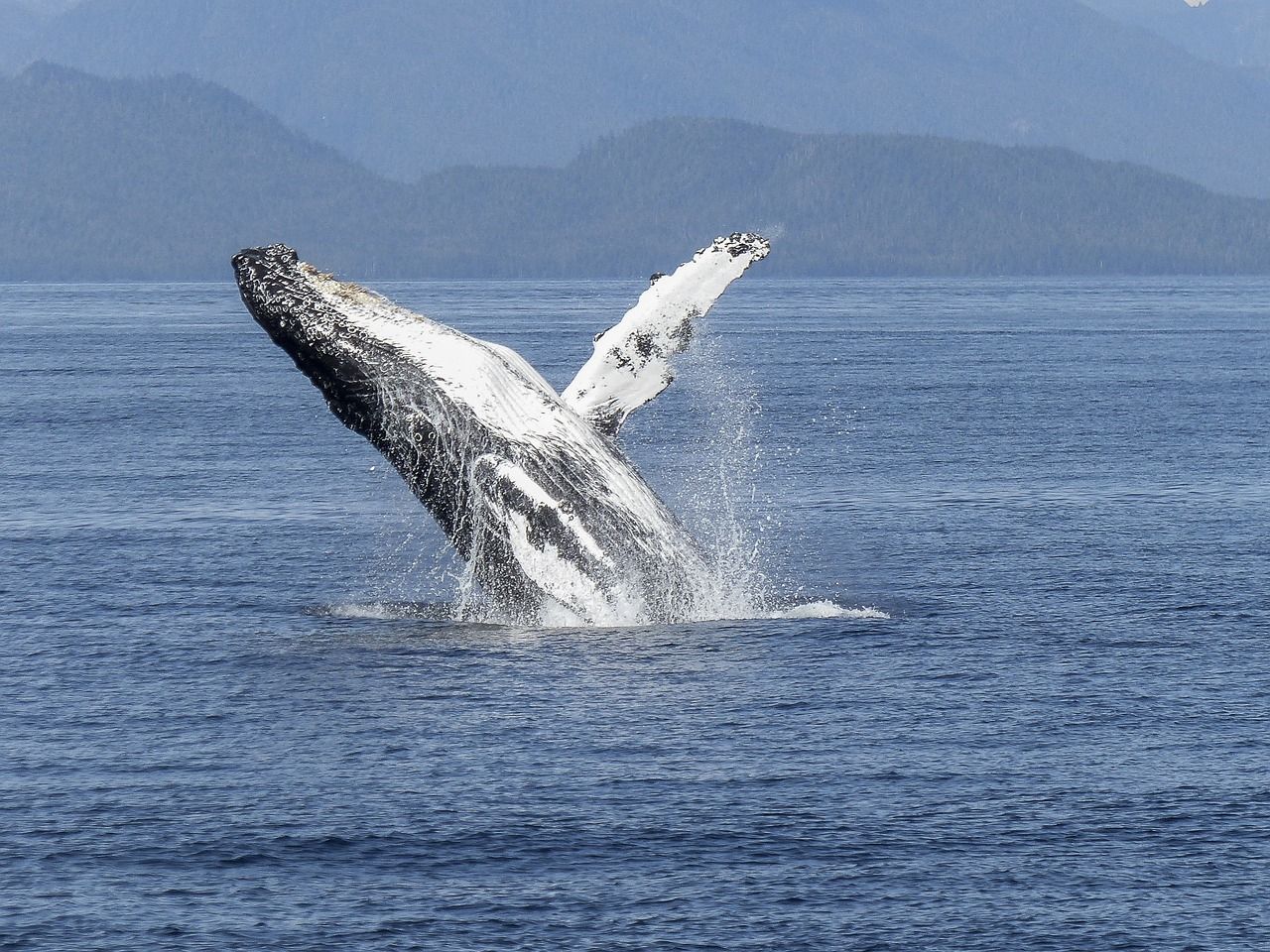
Coastal East Africa: Whale-Watching Spectacle
April is the beginning of humpback whale migration, making it a fantastic time for marine enthusiasts.
Where to Watch:
- Zanzibar, Tanzania: Combine beach relaxation with whale-spotting tours.
- Watamu, Kenya: Renowned for its marine biodiversity and eco-friendly tours.
What to Look For:
- Mothers and calves as whales migrate to warmer waters for birthing.
- Opportunities to see playful behaviors like breaching and tail-slapping.
Tips for an Unforgettable April Safari
Embrace the Rain:
- Pack waterproof clothing and sturdy footwear for wet conditions.
- Rains often bring fewer crowds, vibrant scenery, and great deals on lodges.
Plan for Predator Viewing:
- The Seronera region is a hotspot for big cat sightings during the migration.
- Early morning game drives offer the best chances to see predators in action.
Don’t Miss the Coast:
- Pair your safari with a beach getaway to enjoy the humpback whale migration.
April is a thrilling time to explore Africa’s wildlife, with dramatic displays on land and sea. From battling antelopes in Southern Africa to the predator-prey drama in East Africa and whale migrations along the coast, this month offers an adventure for every nature lover.
May: The Start of the Dry Season and Spectacular Wildlife Viewing
May marks the beginning of the dry season in Southern Africa, bringing unparalleled opportunities to observe wildlife as herds congregate near water sources. In East Africa, the Great Migration continues its dramatic journey, with wildebeest braving crocodile-infested waters. This is a month of breathtaking wildlife encounters and scenic beauty.
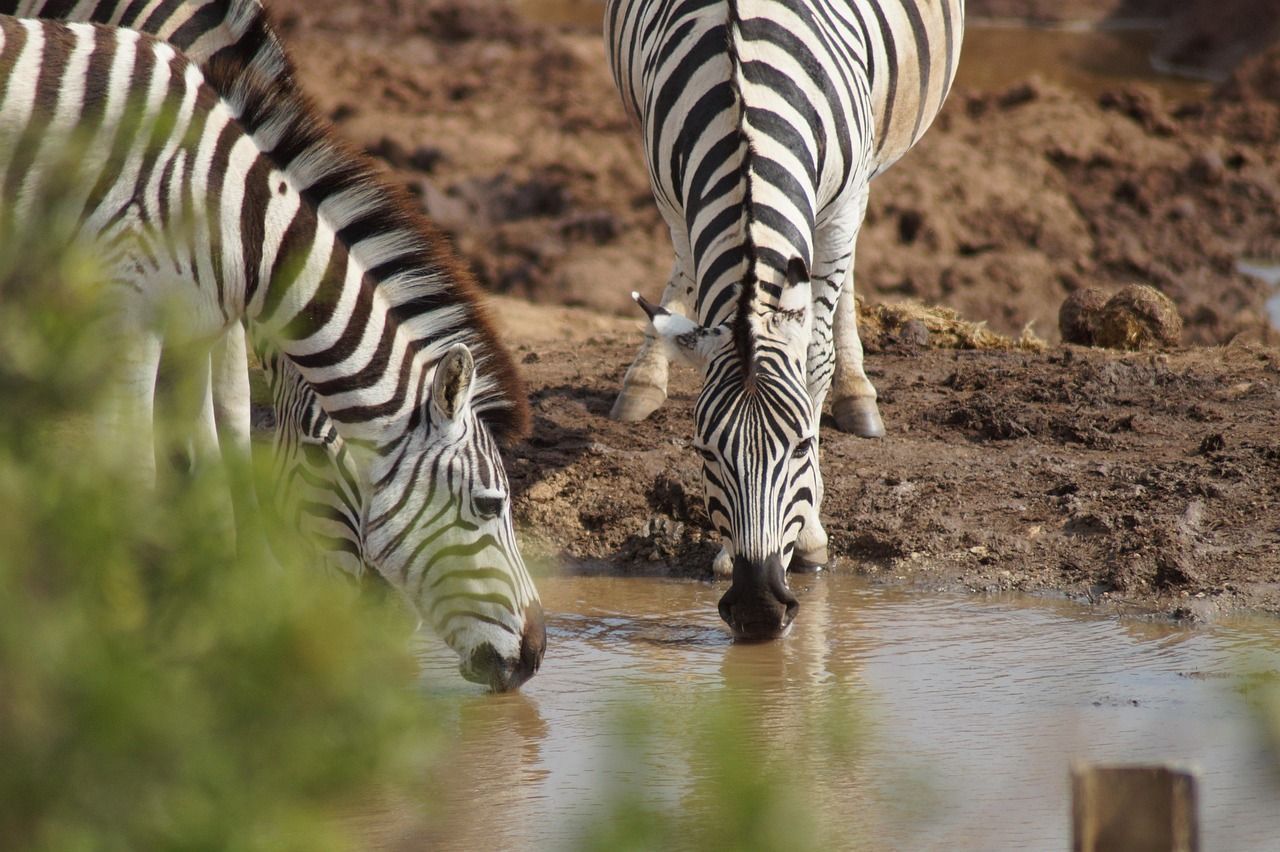
Why Visit Africa in May?
Southern Africa Highlights:
- Drying grasslands push wildlife toward wetlands, offering excellent visibility.
- Predators follow prey, creating thrilling safari experiences.
- Moderate weather with cool mornings and warm afternoons.
East Africa Highlights:
- The Great Migration reaches the western corridor of the Serengeti.
- Grumeti River crossings showcase high-stakes predator-prey interactions.
Top Wildlife Destinations in May
Southern Africa: Zimbabwe’s Rich Wildlife Experiences
Zimbabwe shines in May, with its iconic parks and natural wonders.
Hwange National Park:
- The drying season concentrates elephants, buffalo, and zebras near waterholes.
- Exceptional predator sightings, including lions and wild dogs.
Lake Kariba:
- A unique safari experience combining water and wildlife.
- Spot hippos, crocodiles, and elephants along the shoreline.
Victoria Falls:
- Still in peak flow, the Falls are a breathtaking sight, with thundering cascades and misty rainbows.
- A great time for activities like helicopter rides or walking tours.
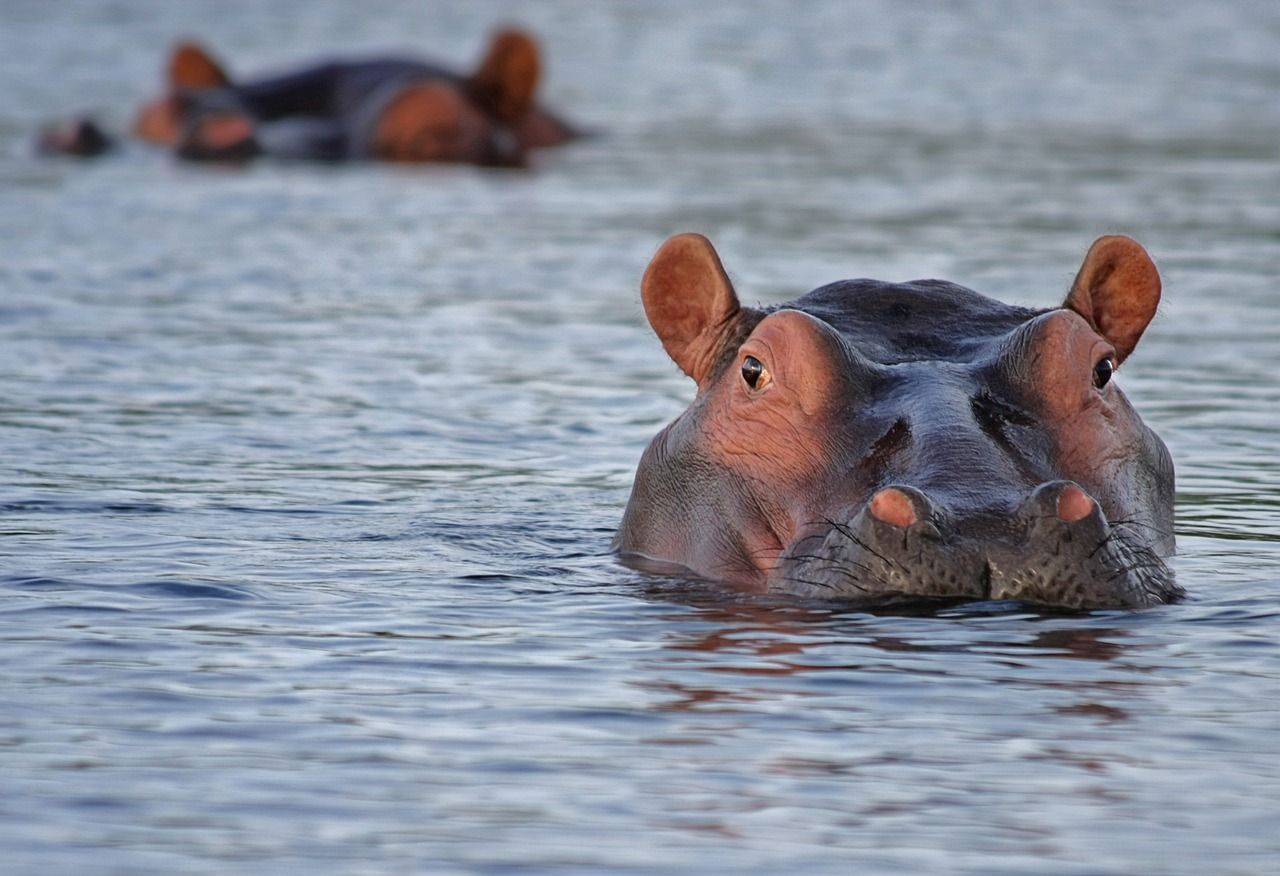
Serengeti National Park, Tanzania: The Great Migration Continues
May sees the migrating wildebeest reaching the western corridor, a crucial leg of their epic journey.
Wildlife Highlights:
- Thousands of wildebeest and zebras arrive, pursued by lions, hyenas, and leopards.
- The dramatic crossing of the Grumeti River, where crocodiles lie in wait.
- Birdwatching opportunities with both resident and migratory species.
Why Visit in May:
- The Serengeti is less crowded than during peak migration months.
- Lush greenery from recent rains offers beautiful landscapes.
Tips for an Amazing May Safari
For Southern Africa:
- Choose Hwange for a classic land-based safari.
- Add Lake Kariba to your itinerary for a unique water-based wildlife experience.
- Visit Victoria Falls early in the morning for fewer crowds and stunning light.
For East Africa:
- Stay near the Grumeti River to witness the thrilling river crossings.
- Plan game drives around water sources to maximize sightings of predators.
General Tips:
- Pack layers for cool mornings and warm afternoons.
- A good pair of binoculars enhances wildlife spotting from a distance.
May is an extraordinary time to explore Africa's diverse ecosystems. From the concentrated wildlife activity in Southern Africa’s wetlands to the adrenaline-filled drama of the Great Migration in East Africa, this month promises unforgettable experiences for nature lovers and adventurers alike
June: Prime Time for Wildlife Viewing and Gorilla Trekking
June marks the arrival of the dry season in several parts of Africa, making it one of the best months for safari adventures. As water sources dwindle and vegetation thins, wildlife becomes easier to spot, while drier conditions create ideal opportunities for gorilla trekking in East Africa.
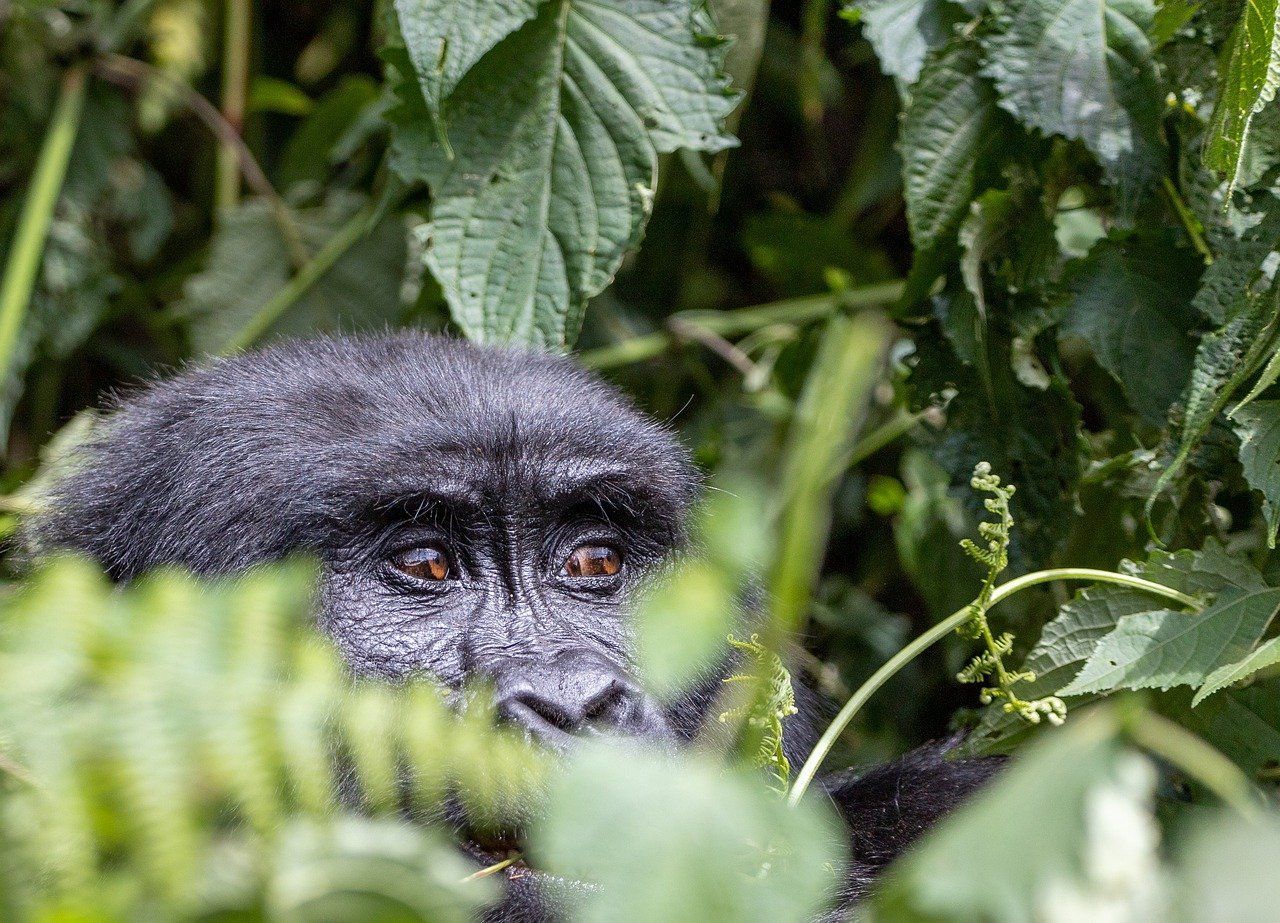
Why Travel to Africa in June?
- Clearer Wildlife Viewing: Drying landscapes in Botswana and Uganda bring animals closer to water sources, offering exceptional game sightings.
- Superb Gorilla Trekking: Drier trails in Uganda and Rwanda make for comfortable and accessible gorilla trekking experiences.
- Mild Weather: Cool mornings and pleasant afternoons create perfect conditions for safaris and treks.
Top Destinations for June Wildlife Encounters
Botswana: Thriving Wildlife in the Dry Season
As waterholes shrink and the ground dries, Botswana’s wildlife gathers in predictable areas, making June an excellent time for game viewing.
Where to Go:
- Okavango Delta: Animals concentrate around the delta as it reaches peak flood levels, offering unique sightings.
- Chobe National Park: Large herds of elephants and buffalo gather near the Chobe River.
- Moremi Game Reserve: A haven for predators like lions and leopards, as well as abundant birdlife.
Why Visit in June:
- Minimal vegetation ensures unobstructed views of wildlife.
- Cooler weather makes game drives and boat safaris more enjoyable.
Uganda and Rwanda: Gorilla Trekking Adventures
June is one of the best months for trekking endangered mountain gorillas due to the drier conditions.
Where to Go:
- Bwindi Impenetrable National Park, Uganda: Home to nearly half of the world’s mountain gorillas.
- Volcanoes National Park, Rwanda: Renowned for its dramatic landscapes and gorilla families.
Why June is Ideal:
- Dry trails make trekking safer and less physically demanding.
- Stunning forest scenery is enhanced by the season's mild weather.
Tips for an Unforgettable June Safari
In Botswana:
- Pack neutral-colored clothing and layers to stay comfortable during cool mornings and warm afternoons.
- Book boat safaris in the Okavango Delta to spot wildlife from a unique perspective.
For Gorilla Trekking:
- Secure permits well in advance as June is a popular month for gorilla trekking.
- Bring sturdy boots, lightweight rain gear, and a good camera for capturing unforgettable moments.
General Safari Tips:
- Early morning and late afternoon game drives offer the best chances of seeing active wildlife.
- A pair of binoculars is essential for birdwatching and spotting animals from a distance.
June is an exceptional month for exploring Africa's wildlife-rich landscapes. From the concentrated wildlife activity in Botswana to the unparalleled experience of gorilla trekking in Uganda and Rwanda, this is a time to witness Africa’s natural wonders at their finest.
July: Wildlife Spectacles on Land and Sea
July is a prime month for wildlife lovers, offering thrilling land safaris and breathtaking marine encounters. From river crossings in the Serengeti to whale migrations along South Africa’s coast, this is a fantastic time to experience Africa’s diverse ecosystems.
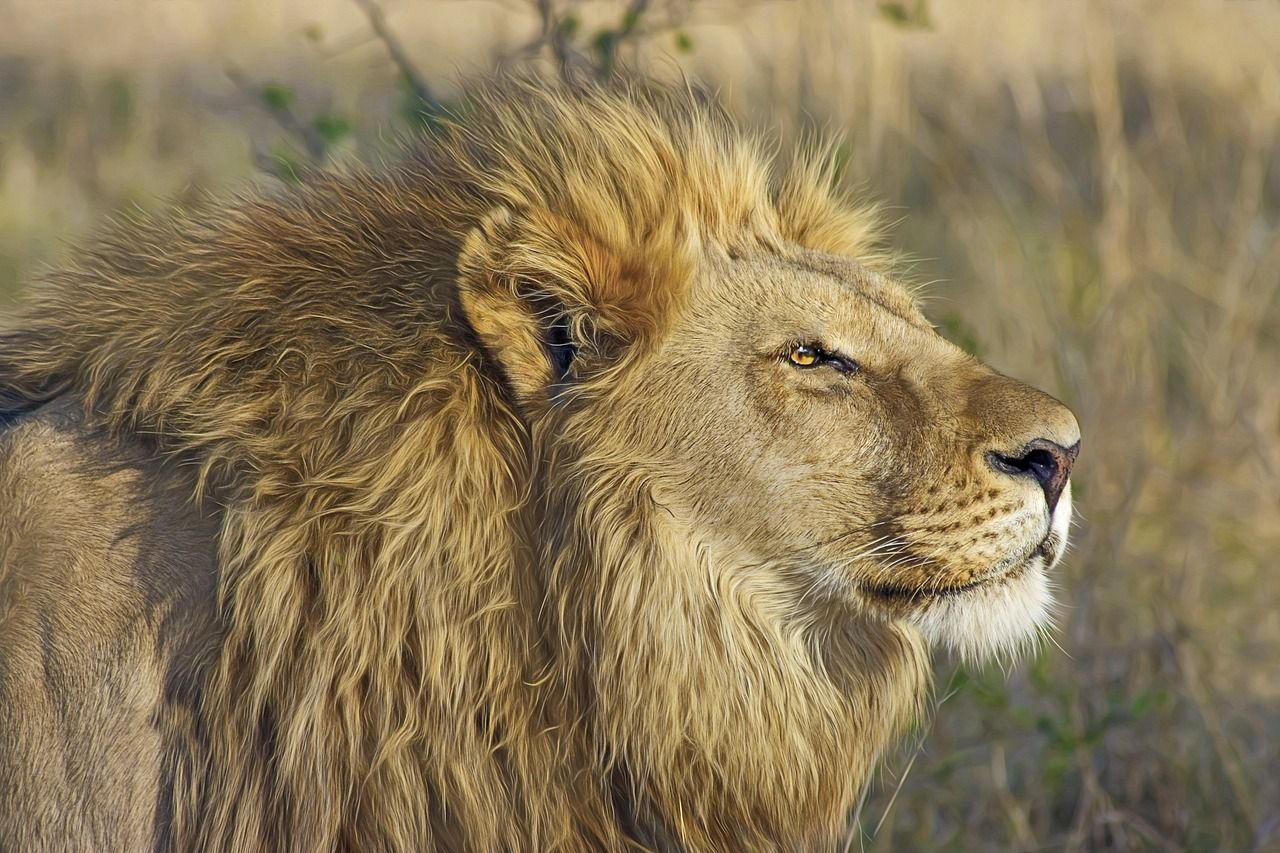
Why Visit Africa in July?
- Marine Magic in South Africa: Witness southern right whales and humpback whales on their annual migration along the coast.
- Exceptional Game Viewing: Animals congregate around waterholes in South Africa’s reserves, making wildlife easier to spot.
- Great Migration Drama: The western Serengeti and Masai Mara showcase spectacular river crossings and predator-prey interactions.
Top Destinations for July Adventures
South Africa: Whale Watching and Game Viewing
South Africa offers a unique combination of marine and terrestrial wildlife viewing in July.
Whale Watching:
- Hermanus: Renowned as one of the world’s best land-based whale-watching destinations.
- Western Cape: Southern right whales and humpbacks migrate close to the shore, providing incredible sightings.
- Garden Route: Pair whale watching with coastal scenery and activities like kayaking or boat tours.
Game Viewing:
- Animals congregate near waterholes in reserves like Kruger National Park and Addo Elephant National Park.
- Cooler temperatures make game drives more comfortable, and the sparse vegetation offers clear views of wildlife.
Serengeti and Masai Mara: The Great Migration River Crossings
July is the peak time to witness the Great Migration as it reaches the western Serengeti and moves north toward Kenya’s Masai Mara.
What to Expect:
- Thousands of wildebeest and zebras crossing the Grumeti and Mara Rivers, braving crocodiles and swift currents.
- Big cats like lions, cheetahs, and leopards follow the herds, creating dramatic predator-prey moments.
- Endless columns of wildebeest, offering iconic African safari scenes.
Where to Go:
- Western Serengeti, Tanzania: Early July is ideal for river crossings and predator sightings.
- Masai Mara, Kenya: Mid-to-late July sees the herds entering Kenya, where the drama continues.
Tips for a Memorable July Safari
In South Africa:
- Combine a coastal road trip with safaris for the ultimate wildlife experience.
- Pack binoculars for spotting whales from the shore and a windbreaker for cool coastal breezes.
For the Great Migration:
- Stay at lodges near the Grumeti or Mara Rivers to witness the crossings firsthand.
- Plan early morning and evening game drives for the best wildlife activity.
General Safari Tips:
- Book accommodations and tours well in advance, as July is a popular travel month.
- Carry layers for cool mornings and warm afternoons, especially in open safari vehicles.
July is a month of dramatic wildlife events, from the thunderous river crossings of the Great Migration to the serene yet awe-inspiring whale migrations along South Africa’s coast. Whether you’re exploring savannahs or shorelines, July promises unforgettable encounters with Africa’s natural wonders.
August: Peak Wildlife Drama and Exclusive Safaris
August is a spectacular month for wildlife enthusiasts. The Great Migration reaches its height in Kenya’s Masai Mara with thrilling river crossings, while Tanzania’s Selous Game Reserve offers exceptional game viewing away from the crowds.
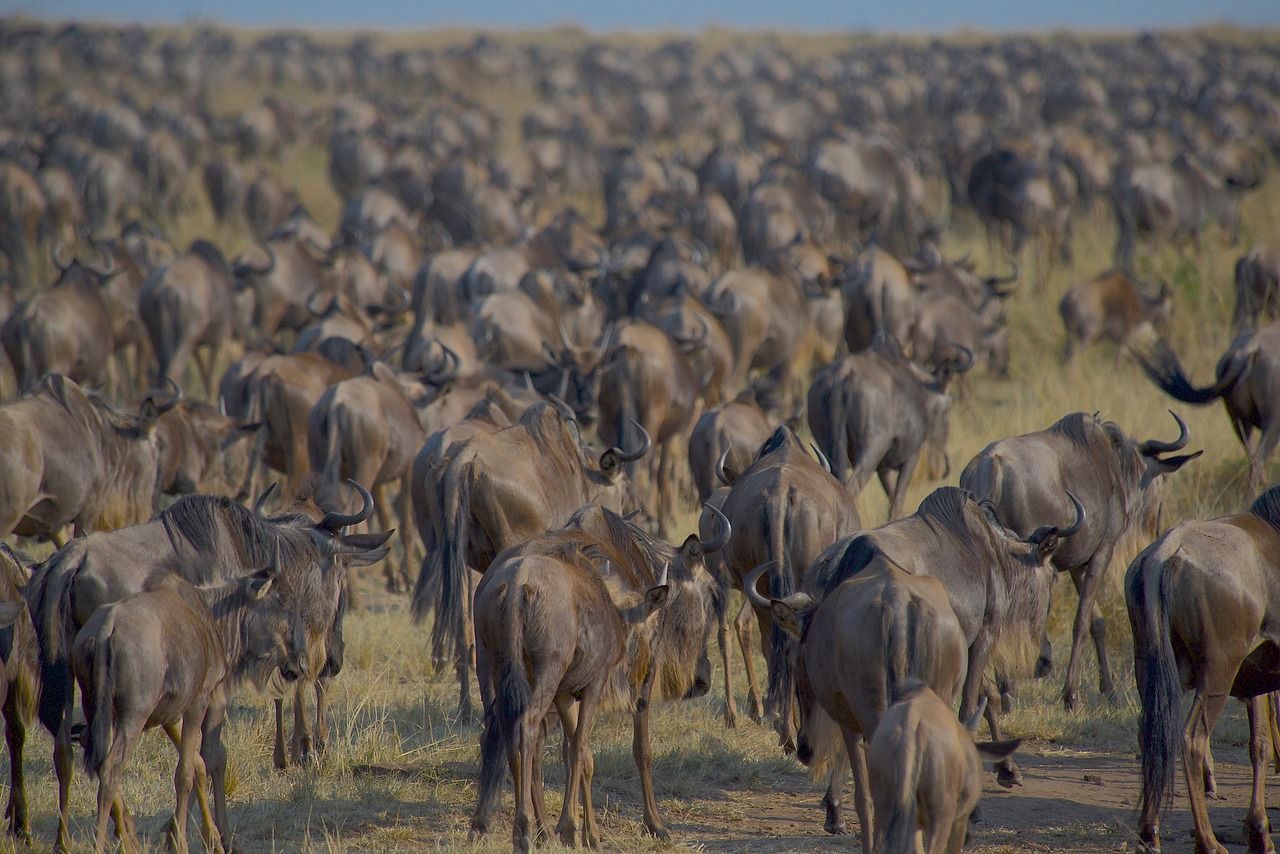
Why Visit Africa in August?
- Unforgettable Migration Sightings: The Mara and Talek river crossings are the highlight of the Great Migration.
- Quiet Luxury in Selous: Experience peak-season game viewing without the typical safari crowds.
- Favorable Weather: Dry conditions across East Africa make it perfect for safaris and photography.
Top Destinations for August Wildlife Experiences
Masai Mara, Kenya: The Heart of the Great Migration
August is the pinnacle of the Great Migration in the Masai Mara, offering jaw-dropping scenes of survival.
What to Expect:
- Massive herds of wildebeest and zebras gather to cross the Mara and Talek rivers.
- Predators like lions, leopards, and crocodiles lie in wait, creating intense predator-prey interactions.
- The Mara’s golden plains provide iconic African safari landscapes.
Why Visit in August:
- Prime river crossing season, with dramatic wildlife activity.
- Clear skies and cool temperatures make for ideal safari conditions.
Pro Tip:
Book lodges or camps close to the rivers for front-row seats to the action.
Selous Game Reserve, Tanzania: Remote and Untamed
For those seeking quieter safaris, Selous Game Reserve is a hidden gem with abundant wildlife and fewer visitors.
What to Expect:
- Elephants, buffalo, lions, and wild dogs thrive in this massive reserve.
- A variety of ecosystems, including savannahs, woodlands, and wetlands, offer diverse wildlife encounters.
- Boat safaris on the Rufiji River provide unique views of hippos, crocodiles, and birdlife.
Why Visit in August:
- Peak-season game viewing with minimal crowds.
- Dry season conditions make wildlife easier to spot as animals gather around water sources
Tips for an Incredible August Safari
For the Masai Mara:
- Stay flexible with game drives, as river crossings are unpredictable.
- A good pair of binoculars is essential for capturing distant wildlife action.
For Selous Game Reserve:
- Opt for guided walking safaris to experience the park’s untamed beauty up close.
- Combine your trip with a visit to Zanzibar for a relaxing beach escape after your safari.
General Safari Advice:
- August is a popular month; book accommodations and permits well in advance.
- Pack layers for chilly mornings and warm afternoons.
August delivers a stunning array of wildlife experiences, from the high-stakes drama of the Great Migration in Kenya to the peaceful yet thrilling safaris in Tanzania’s Selous Game Reserve. Whether you’re chasing the action or seeking serenity, Africa in August will leave you in awe.
September: Prime Time for Game Viewing Across Africa
September is one of the best months for wildlife safaris, with dry season conditions making game viewing spectacular across most of Africa. In addition to land-based wildlife encounters, migrating birds add another layer of fascination as they travel southward.
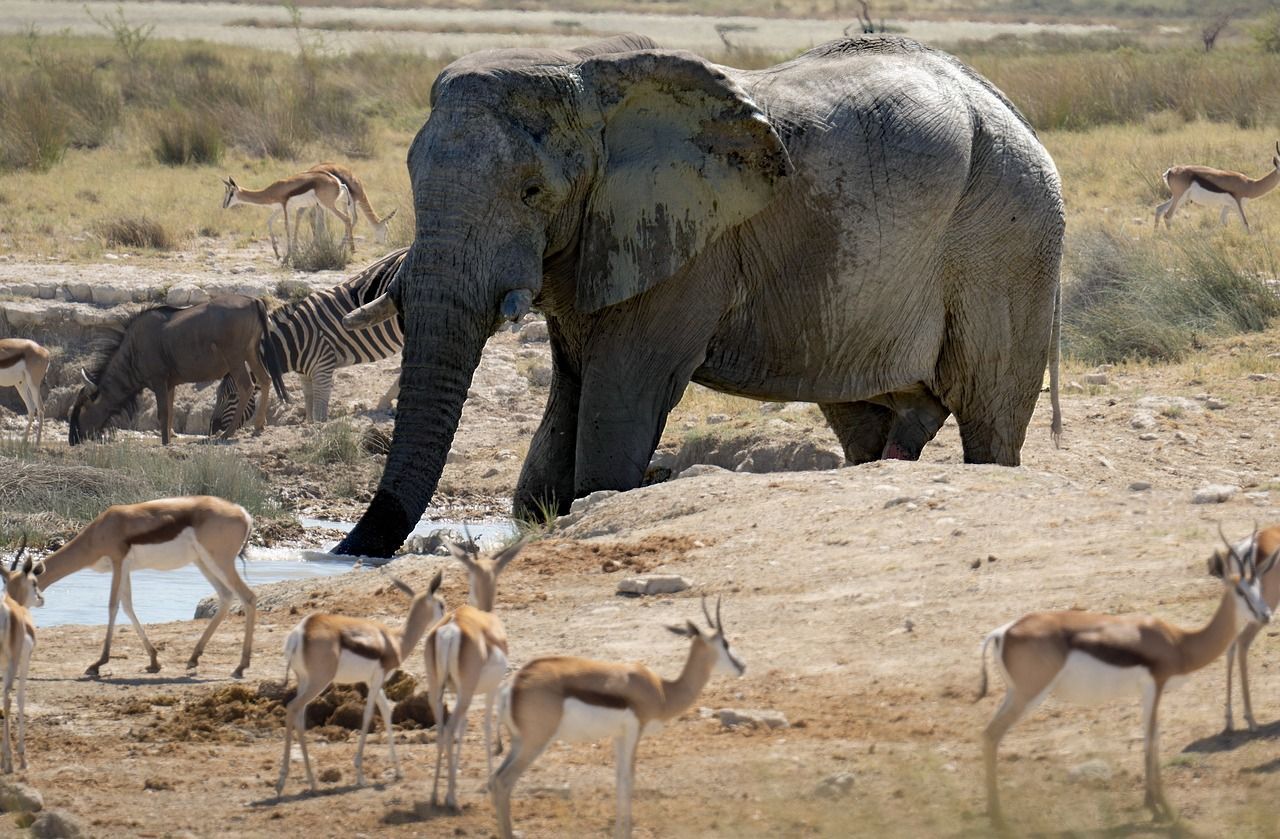
Why Visit Africa in September?
- Peak Game Viewing: The dry season forces animals to congregate around water sources, making them easier to spot.
- Bird Migration: Large numbers of migrating birds move south through East Africa to Southern Africa.
- Comfortable Weather: Warm days and cool evenings create perfect safari conditions.
Top Destinations for September Safaris
Kenya and Tanzania
Masai Mara, Kenya:
- The Great Migration continues with wildebeest and zebras grazing on the Mara’s golden plains.
- Predator sightings are frequent, with lions, cheetahs, and leopards thriving in this time of abundance.
Serengeti, Tanzania:
- Wildlife is concentrated in the northern Serengeti, offering quieter game drives compared to the Masai Mara.
Zambia and Zimbabwe
South Luangwa National Park, Zambia:
- September is the best time to spot leopards, often seen lounging in trees.
- Dry conditions reveal a high density of wildlife along the Luangwa River.
Hwange National Park, Zimbabwe:
- Elephants congregate in large numbers at waterholes, creating incredible viewing opportunities.
The clear skies and thinning vegetation enhance visibility for game viewing
Southern Africa: South Africa, Botswana, and Namibia
Kruger National Park, South Africa:
- The northern Kruger region offers exceptional sightings of lions, elephants, rhinos, and wild dogs.
- Guided walking safaris provide a deeper connection with the bush.
Okavango Delta, Botswana:
- September marks the tail end of the delta’s flood season, offering unique water-based safari experiences.
- Hippos, crocodiles, and birds dominate the waterways, while predators stalk the floodplains.
Etosha National Park, Namibia:
- Waterholes become magnets for wildlife, making them prime spots for observing elephants, giraffes, and zebras.
- The stark, white salt pans offer a striking contrast to the bustling waterholes.
Birdwatching in September
Migrating birds travel south in September, enriching the skies and wetlands of Africa.
Key Birding Spots:
- Lake Nakuru, Kenya: Flocks of flamingos and other waterbirds gather.
- Zambezi River, Zambia/Zimbabwe: A hotspot for waders and raptors during migration.
- Chobe National Park, Botswana: Large numbers of storks, herons, and bee-eaters can be spotted.
Tips for a Perfect September Safari
- Book Early: September is peak season for safaris; reserve accommodations and permits well in advance.
- Pack for Warm Days and Cool Evenings: Layered clothing will help you adapt to temperature changes.
- Bring Binoculars: Essential for spotting migrating birds and distant wildlife.
September is a truly remarkable month to explore Africa, with unparalleled game viewing opportunities and the added spectacle of migrating birds. Whether you’re drawn to the drama of the Great Migration, the quiet beauty of Namibia, or the abundant wildlife in Zambia, September offers something extraordinary for every adventurer.
October: Wildlife Galore in Africa’s Dry Season
October is an excellent time for wildlife enthusiasts, as dry season conditions across Southern Africa lead to unparalleled game viewing. With animals concentrated around waterholes and predators on the hunt, October offers dramatic safari experiences in iconic destinations like Etosha, Hwange, and Sabi Sands.
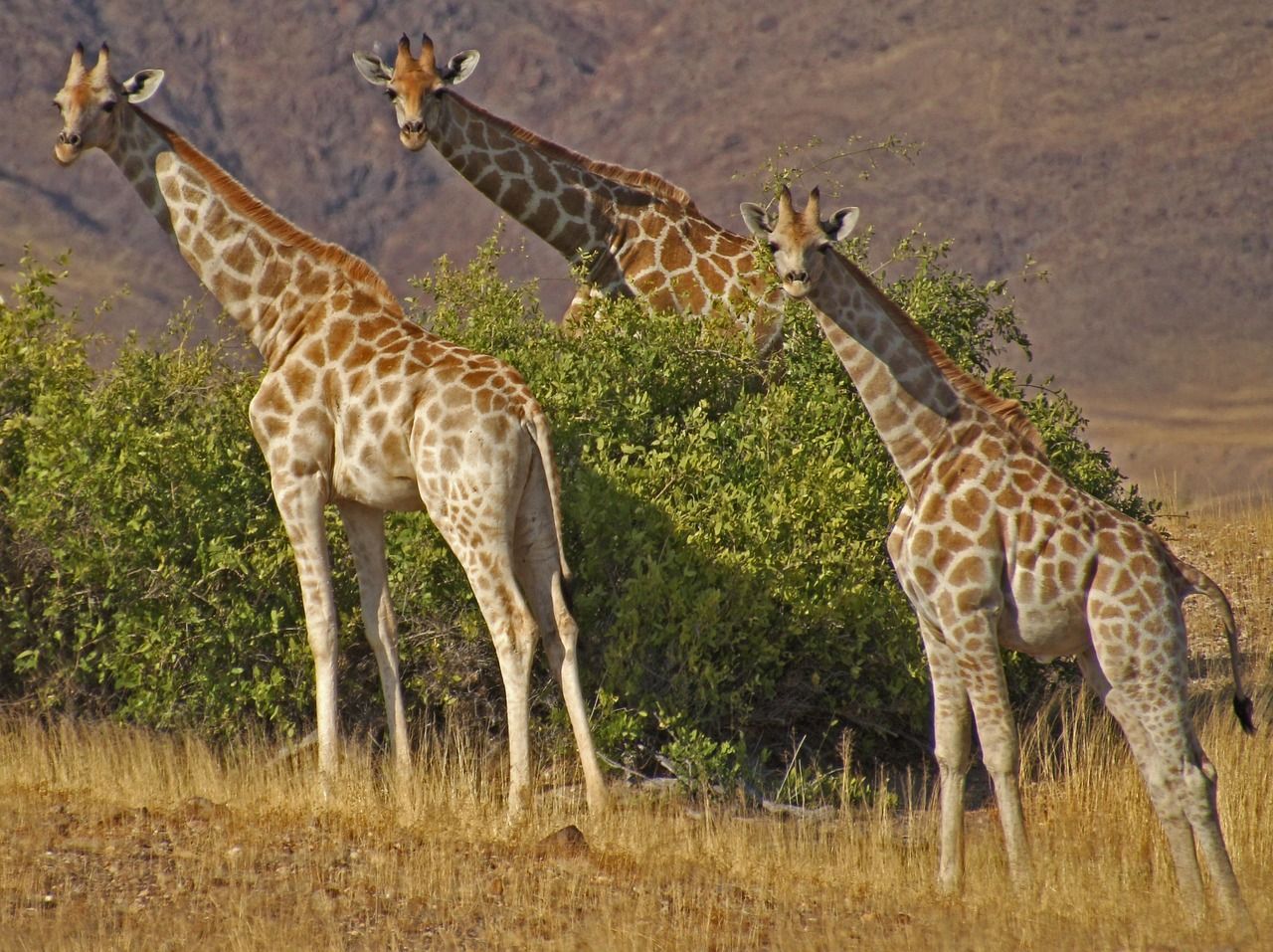
Why Visit Africa in October?
- Unmatched Game Viewing: Dry conditions push wildlife to waterholes, making sightings predictable and spectacular.
- Predator Action: Big cats and wild dogs thrive as prey gathers in concentrated areas.
- Vivid Landscapes: The stark contrasts of dry terrain and busy waterholes create unforgettable scenery.
Top Wildlife Destinations in October
Etosha National Park, Namibia
October in Etosha is all about waterholes, where diverse wildlife congregates as others dry out.
What to Expect:
- Elephants, giraffes, rhinos, lions, and herds of zebra and springbok gather around key waterholes.
- Exceptional predator-prey interactions as big cats take advantage of the limited water sources.
- Etosha’s iconic white salt pans provide a stunning backdrop to the bustling wildlife activity.
Why Visit in October:
- High concentrations of animals make for non-stop action at the waterholes.
- Sparse vegetation offers clear, unobstructed views for photographers and safari enthusiasts.
Hwange National Park, Zimbabwe
Hwange shines in October as water sources dwindle, attracting large herds of elephants and other game.
What to Expect:
- The park’s famous elephant herds gather in enormous numbers near waterholes.
- Predators, including lions, leopards, and wild dogs, take advantage of the concentrated prey.
- Spectacular sunsets over the arid landscape add to the beauty of your safari experience.
Why Visit in October:
- Peak wildlife activity as the park reaches its driest phase.
- Fewer crowds compared to busier months like July and August
Sabi Sands, Kruger National Park, South Africa
October is one of the best months to visit Sabi Sands, where wildlife viewing reaches its peak.
What to Expect:
- Leopards, lions, and wild dogs are frequently seen hunting near water sources.
- Waterhole activity includes elephants, buffalo, and antelope herds.
- Luxurious lodges and expert guides ensure intimate and exclusive safari experiences.
Why Visit in October:
- Excellent visibility due to dry terrain and thinning vegetation.
- Exclusive access to private reserves ensures fewer vehicles and quieter game drives.
Tips for a Thrilling October Safari
- Plan for Heat: October is one of the hottest months in Southern Africa; pack lightweight clothing, a wide-brim hat, and sunscreen.
- Waterhole Strategy: Spend extended time at waterholes, as they become hubs of wildlife activity.
- Stay Hydrated: Bring a reusable water bottle and keep it handy during game drives.
- Pack Binoculars: Essential for spotting distant animals and observing predator-prey interactions.
October is a wildlife-lover’s dream, with concentrated animal activity and dramatic predator action set against striking dry-season landscapes. Whether you’re marveling at bustling waterholes in Etosha, watching iconic species in Hwange, or enjoying exclusive sightings in Sabi Sands, October promises unforgettable safari moments.
November: Affordable Safaris and the Great Migration on the Move
November in Africa brings unique opportunities for wildlife enthusiasts and budget-savvy travelers. As the migrating herds of wildebeest and zebras head south into Tanzania, dramatic river crossings continue, and low-season rates make it an ideal time for an off-peak adventure.
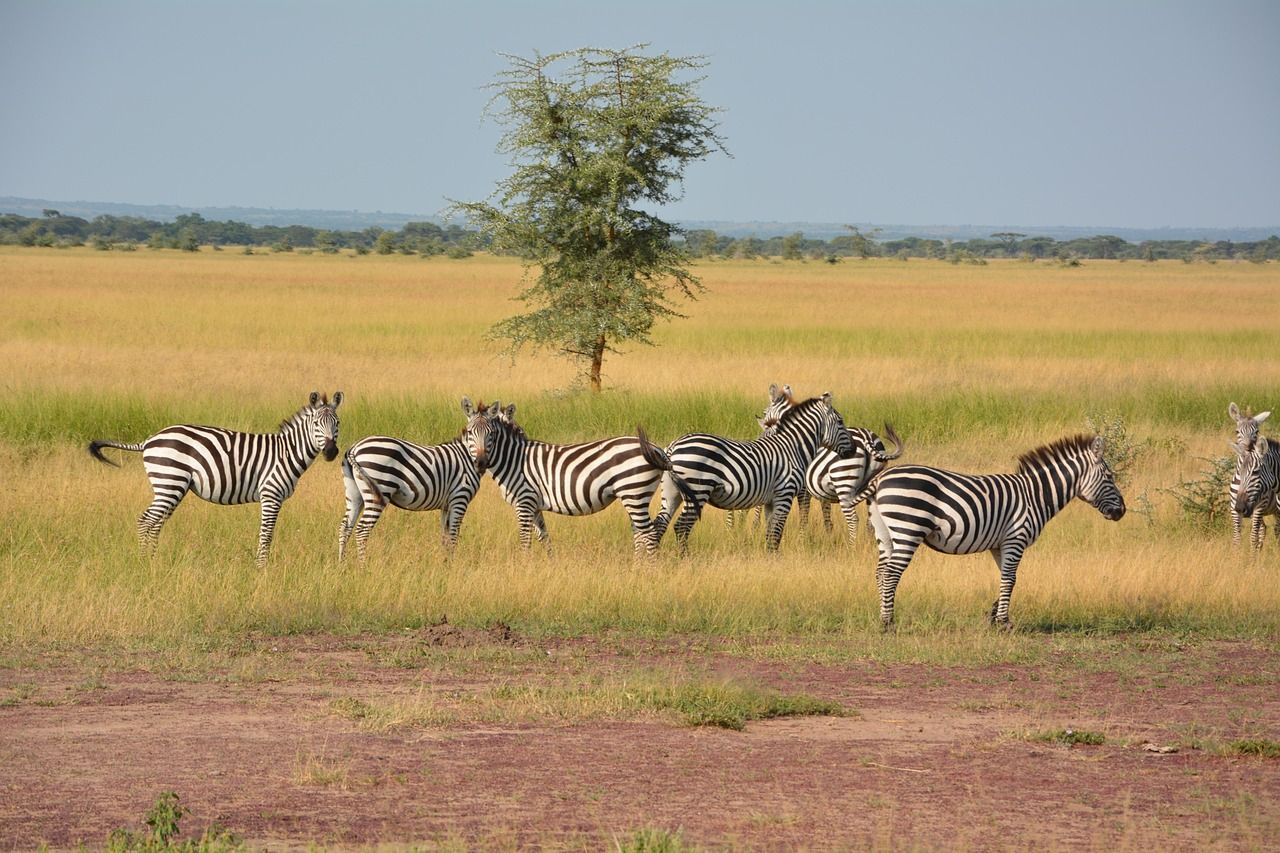
Why Visit Africa in November?
- Low-Season Rates: Enjoy discounts on safaris and accommodations in Tanzania while still experiencing incredible wildlife.
- Migration Spectacle: The wildebeest migration begins its southward journey, offering opportunities to see river crossings in the northern Serengeti.
- Quieter Safaris: Fewer tourists mean a more serene and intimate experience in the parks
Top Destinations for November Safaris
Northern Serengeti, Tanzania
November is a transitional month for the Great Migration as herds move southward in search of fresh grazing lands.
What to Expect:
- River crossings at the Mara River continue in early November as straggling herds make their way south.
- Predator activity remains high, with lions, cheetahs, and crocodiles taking advantage of the migrating prey.
- The northern Serengeti offers breathtaking views of open plains and scattered acacia trees.
Why Visit in November:
- Witness the migration without the peak-season crowds.
- Enjoy reduced rates for lodges and camps during the low season.
Central and Southern Serengeti, Tanzania
As the herds progress southward, they begin to arrive in the central and southern Serengeti regions by late November.
What to Expect:
- Large concentrations of wildebeest and zebras arriving on the lush plains after short rains rejuvenate the grasslands.
- Opportunities to see calving impalas and other antelope, signaling the start of the birthing season.
- Resident predators, such as leopards and hyenas, stay active year-round.
Benefits of Traveling in November
- Low Crowds: With fewer tourists, you’ll enjoy quieter game drives and more personal wildlife encounters.
- Vivid Scenery: The short rains transform the landscape, with green grasslands providing a stunning backdrop for wildlife.
- Affordable Rates: Off-peak pricing makes November one of the most budget-friendly times to explore Tanzania’s wildlife.
Tips for a November Safari
- Pack for Light Rains: While the short rains rejuvenate the plains, they are typically brief and won’t disrupt your safari. Bring a lightweight rain jacket and waterproof footwear.
- Stay Flexible: Animal movements can be unpredictable; work with experienced guides to maximize sightings.
- Consider Combining Regions: Divide your time between the northern and central Serengeti to follow the migrating herds.
November offers a perfect balance of affordability, spectacular wildlife, and serene safari experiences. From witnessing dramatic river crossings in the northern Serengeti to the arrival of migrating herds in the lush central plains, this is a fantastic time to immerse yourself in Tanzania’s natural wonders.
December: New Life and Predator Action Across Africa
December marks a season of renewal and drama in Southern Africa, with newborn wildlife taking center stage. From adorable seal pups along Namibia's Skeleton Coast to predator-rich landscapes in Botswana's Kalahari Desert, this is a time of contrasts and unforgettable experiences
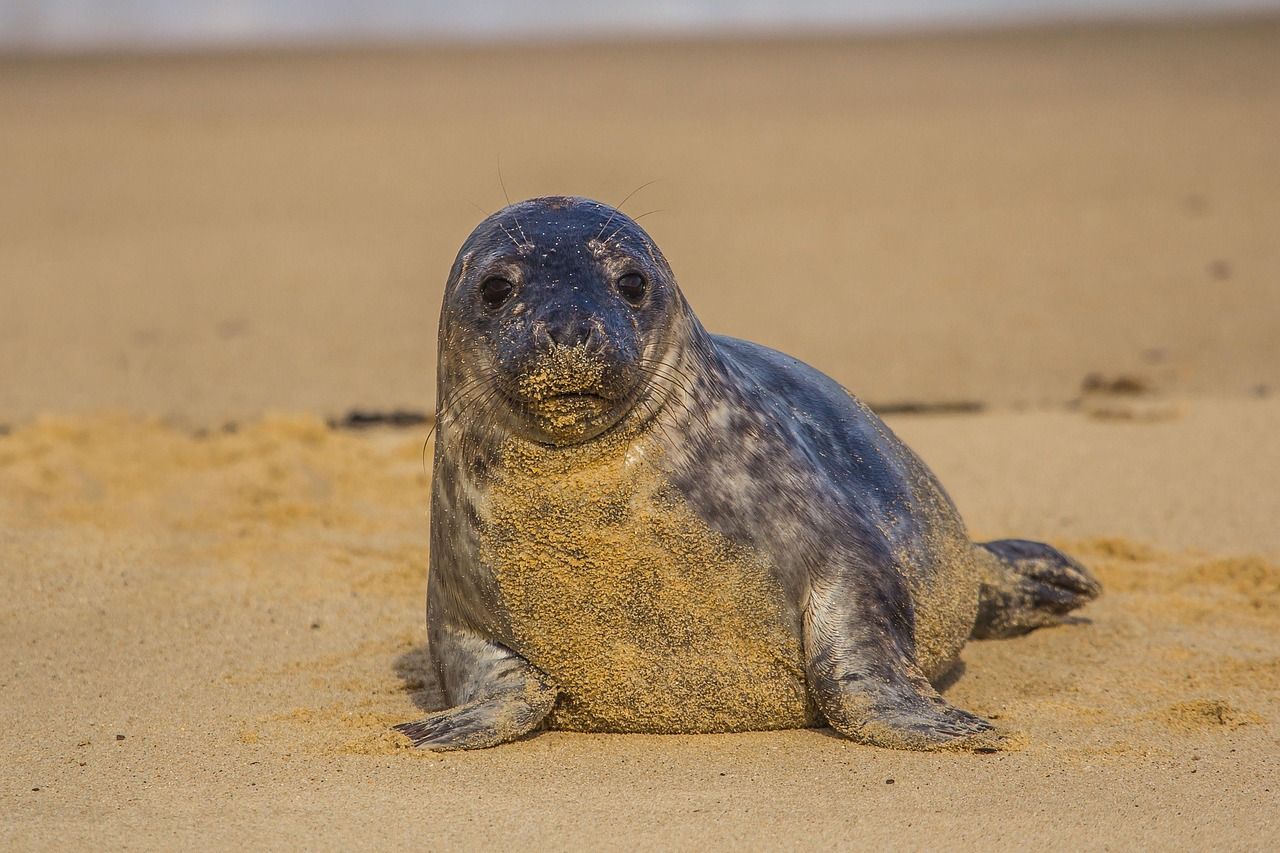
Why Visit Africa in December?
- Wildlife in Abundance: The arrival of newborns attracts predators, creating incredible game-viewing opportunities.
- Seasonal Highlights: Witness unique wildlife events like seal pup births and lush grasslands teeming with animals.
- Spectacular Landscapes: Rain rejuvenates the Kalahari, turning it into a verdant paradise, while Namibia’s coastline offers dramatic seascapes.
Top Destinations for December Safaris
Skeleton Coast, Namibia: Seal Pup Season
The Skeleton Coast is the place to be in December for marine wildlife enthusiasts.
What to Expect:
- Thousands of Cape fur seals give birth, creating bustling colonies filled with adorable pups.
- Predators like jackals and brown hyenas patrol the area, drawn by the abundance of easy prey.
- Striking coastal scenery, with rugged beaches and crashing waves, adds to the experience.
Why Visit in December:
- The sight of thousands of seal pups is a once-in-a-lifetime spectacle.
- Cooler coastal temperatures provide a refreshing contrast to the hotter interior.
Kalahari Desert, Botswana: Predator and Prey Drama
The Kalahari Desert transforms in December, with the onset of rains sparking life across the region.
What to Expect:
- Thousands of zebras migrate to feast on the lush, fresh grass.
- Predator sightings are at their best, with lions, leopards, wild dogs, spotted hyenas, and cheetahs following the herds.
- Hundreds of newborn springbok, impala, wildebeest, and buffalo wobble through their first steps, adding charm to game drives.
Why Visit in December:
- The abundance of prey draws predators, leading to thrilling wildlife encounters.
- The vibrant green landscapes of the Kalahari make for stunning photography.
Tips for a December Safari
- Plan for Mixed Weather: While the Kalahari enjoys fresh rains, Namibia’s Skeleton Coast can be cooler and breezy. Pack layers and lightweight rain gear.
- Don’t Rush: Take time to observe predator-prey dynamics, especially in Botswana, where patience often rewards with dramatic sightings.
- Book Early: December is a popular time for holiday travelers, so secure accommodations and tours in advance.
December is a spectacular time to explore Africa, offering an array of unique wildlife experiences. From the captivating sight of newborn seal pups on Namibia's Skeleton Coast to the predator-rich plains of Botswana's Kalahari, this month promises a perfect mix of charm, drama, and natural beauty.
Our Preferred African Partners
We collaborate with some of the best tour operators specialising in African adventures, all of which have been tried and tested by our experienced team. Among these esteemed operators are Intrepid, Somak, and African Pride, each renowned for their exceptional service and unique itineraries. If you're interested in exploring the wonders of African wildlife holidays, don't hesitate to reach out to us.
We would be more than happy to offer our expert advice on the optimal travel times that suit your preferences and help you tailor your perfect African wildlife holiday experience that you'll remember for a lifetime.
Contact us, email us sales@selecttravelholidays.co.uk or give us a call on 01234 326 778 for a chat.
ADDRESS
24A Mill Street, Bedford, MK40 3HD
Cruise enquiries 01234 326758
Holiday enquiries 01234 326778
OPENING HOURS
- Mon - Fri
- -
- Saturday
- Appointment Only
- Sunday
- Closed
For the latest travel advice from the Foreign & Commonwealth Office including security and local laws, plus passport and visa information, visit FCO Travel Aware website
Select Travel Holidays operate under the license of Fred. Olsen Travel
Financial Protection Before You Travel Booking Conditions Privacy Policy Cookie Policy Website Terms of Use Website by TMS


